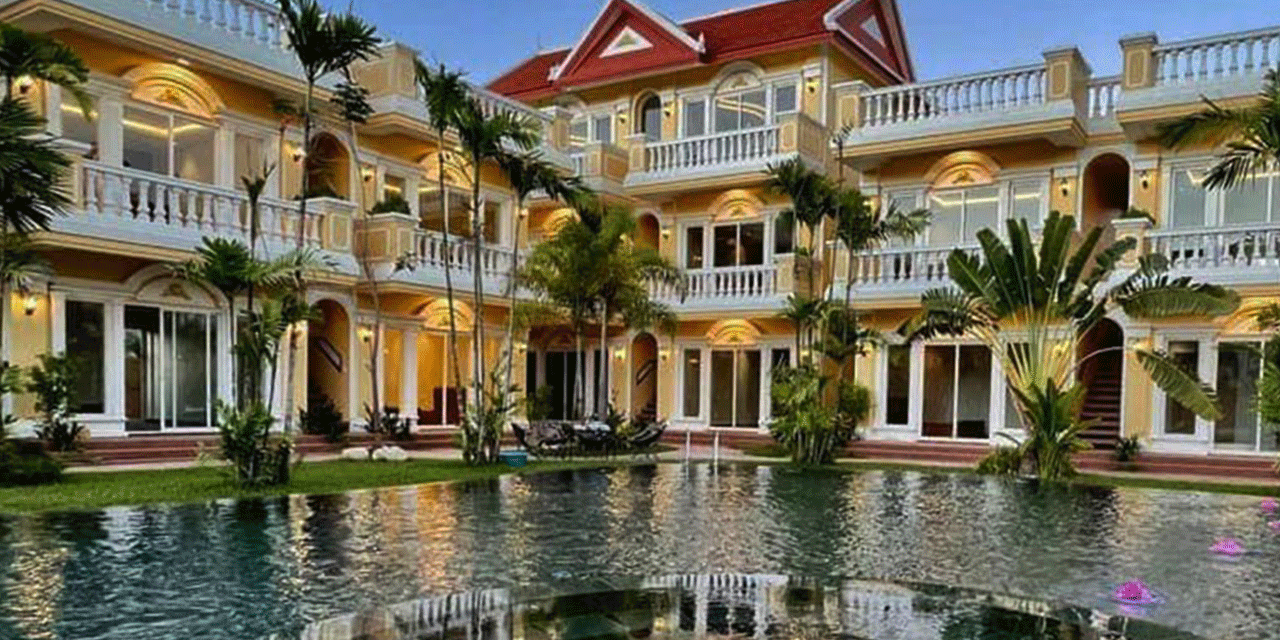There are various types of accommodations available to travelers, each catering to different needs, budgets, and preferences. Here’s an overview of the most common types of accommodation:
guest house is a smaller, often family-run lodging option that offers a more intimate, home-like atmosphere compared to traditional hotels. Typically situated in residential areas or scenic locales, guest houses provide a personal touch, frequently including home-cooked meals or a complimentary breakfast. They often feature individually decorated rooms, communal living spaces, and a relaxed environment that encourages interaction among guests. With fewer rooms than larger hotels, guest houses can offer tailored experiences, enhanced privacy, and a sense of local hospitality that appeals to travelers seeking authenticity and comfort during their stay.
A homestay is a type of accommodation where travelers stay in the home of a local host, offering a deeply personal and cultural experience. Unlike hotels or guest houses, homestays allow guests to live like locals—often sharing meals, participating in daily routines, and gaining insight into the local way of life. Rooms may be private or shared, and amenities can range from basic to comfortable, depending on the host’s home. Homestays are popular among travelers who seek authentic cultural immersion, language learners, volunteers, or anyone wanting a more meaningful connection with the destination. This type of stay is especially common in rural areas, cultural towns, and developing countries, where hospitality and personal interaction are valued over luxury.
An apartment (in the context of travel and accommodation) refers to a self-contained living space that is rented out to travelers, offering the comfort and privacy of a home. Unlike hotels, apartments typically include a fully equipped kitchen, living area, bedroom(s), and sometimes laundry facilities, making them ideal for families, long-term stays, or guests who prefer to cook and live independently. Apartments can be part of a residential building, a serviced apartment complex, or even standalone units. Serviced apartments offer hotel-like services such as housekeeping and reception, while standard rental apartments focus on self-service living. They are especially popular with business travelers, digital nomads, and vacationing families seeking more space, flexibility, and a home-away-from-home experience.
A motel is a type of budget-friendly accommodation typically located along highways or on the outskirts of cities, designed to provide convenient, no-frills lodging for travelers on road trips. The name “motel” comes from a combination of “motor” and “hotel,” as motels originally catered to motorists with easy access to parking directly outside the rooms. Rooms in motels are usually basic, with essential amenities like a bed, bathroom, and sometimes a small TV. Some motels may also offer additional features such as free Wi-Fi, continental breakfast, or vending machines. Motels are known for being cost-effective, offering short-term stays for guests looking for a quick, convenient, and affordable place to rest while traveling. They are most commonly found in rural areas or along major highways.
A hotel is a commercial establishment that provides lodging, meals, and other services for guests. Hotels come in various sizes, from small, independent properties to large, international chains. They typically offer private rooms, ranging from basic accommodations to luxurious suites, and may include additional amenities such as restaurants, bars, fitness centers, meeting rooms, spas, and concierge services. Hotels are designed to cater to different types of travelers, including tourists, business professionals, and long-term guests. Depending on the level of service, hotels can be classified into categories such as budget, mid-range, or luxury, with the range of amenities and service quality corresponding to each category. Hotels are commonly located in urban areas, tourist destinations, and near transport hubs such as airports or train stations, offering convenience, comfort, and a variety of services to meet the needs of their guests.
A resort is a specialized type of hotel designed to offer a comprehensive vacation experience, usually in a scenic or leisure-focused location. Unlike traditional hotels, resorts are often self-contained properties that provide not only lodging but a wide range of recreational activities and amenities, making them ideal for extended stays or vacation getaways. Resorts typically feature luxury accommodations, fine dining, spa services, swimming pools, fitness centers, and entertainment options. Many resorts are located in popular vacation destinations, such as beaches, mountains, or tropical islands, and cater to families, couples, or groups looking to relax and enjoy their surroundings.
In addition to accommodations, resorts often offer organized activities such as water sports, golf, hiking, and cultural excursions. Some resorts even operate on an all-inclusive basis, where meals, drinks, and activities are included in the price, offering a worry-free vacation experience. Resorts are popular choices for tourists seeking relaxation, recreation, and an escape from the daily routine.
An Airbnb house refers to a private home or residential property listed on the Airbnb platform, where homeowners or property managers offer their space for short-term rental to travelers. Unlike traditional hotels, Airbnb houses can range from a single room in someone’s home to an entire house or villa, giving guests a more personalized and often more affordable experience. These properties are typically fully furnished and may come with amenities like kitchens, living rooms, multiple bedrooms, and sometimes even outdoor spaces such as gardens or pools.
One of the key advantages of an Airbnb house is the opportunity to experience local culture and communities more intimately, as these properties are often located in residential neighborhoods or unique locations. Guests can also enjoy greater flexibility, such as the ability to cook their own meals or live in a space with a home-like atmosphere. Many Airbnb hosts also offer additional services, such as local recommendations, guided tours, or transportation assistance, enhancing the overall experience. This type of accommodation is particularly popular for families, groups, or travelers seeking unique and authentic places to stay.






Staying in an Airbnb offers a unique way to immerse yourself in local life and traditions, making the experience more personal. The flexibility to cook meals and enjoy a home-like environment adds to the comfort of your stay. Hosts often go the extra mile by providing valuable local tips and services, which can greatly enhance your trip. It’s ideal for families and groups looking for authentic and memorable accommodations. What are some of the most unique Airbnb experiences others have had?